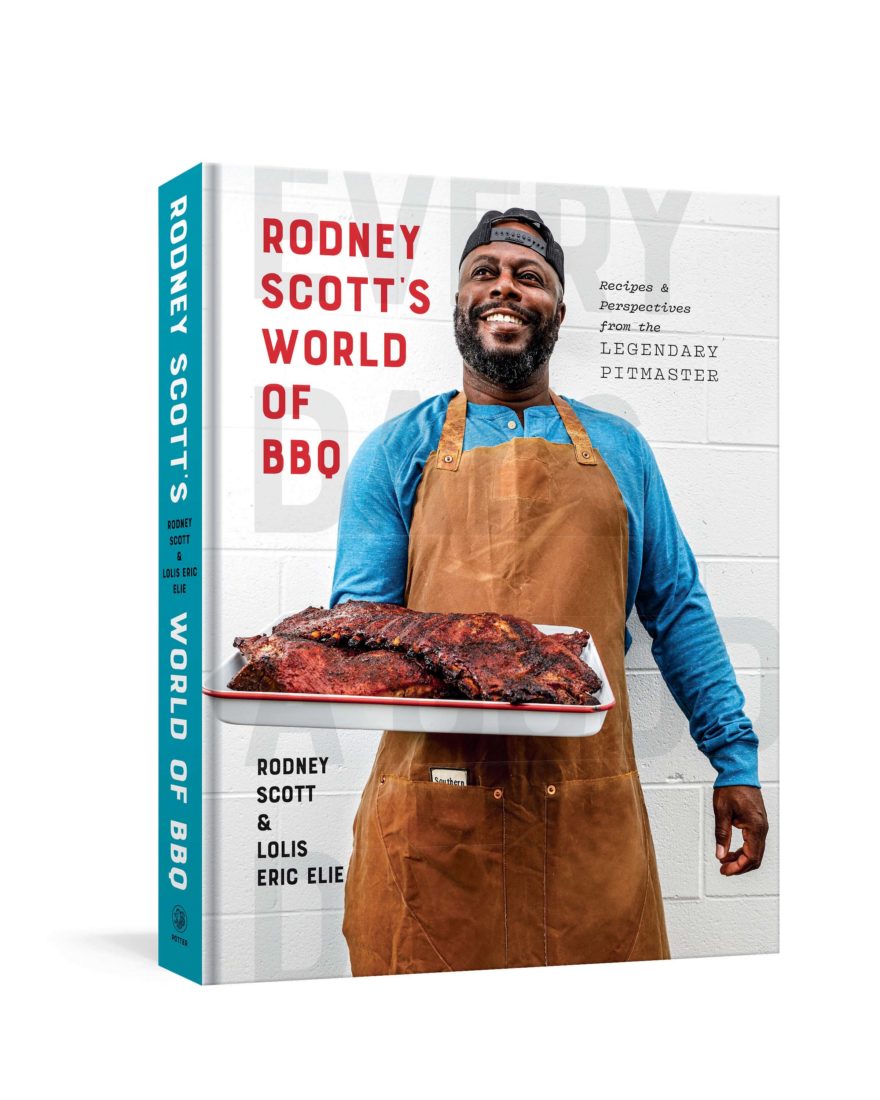The barbecue world has a “Boogie Chillen” problem.
Almost three decades ago, John Lee Hooker’s publisher sued ZZ Top for cribbing, in the band’s hit single “La Grange,” the “Boogie Chillen” guitar groove—a-how how how—from Hooker’s 1948 blues song. But while ZZ Top got served the papers, the band wasn’t the only offender. The Rolling Stones nicked the riff via Slim Harpo for their cover of Harpo’s “Shake Your Hips.” So did Canned Heat and, in its live shows, Led Zeppelin. The Hooker lawsuit failed, but not before engraving some uneasy questions onto the national consciousness: Where does influence end and imitation begin? How and when does imitation—or even homage—curdle into exploitation? Or, as the food writer Adrian Miller applies it to barbecue in his new book, Black Smoke: “Where does one draw the line between apprenticeship, appropriation, and theft?”
Subtitled African Americans and the United States of Barbecue, Miller’s exuberant, vinegary book is ostensibly a corrective history. Corrective, because anyone born after 1990 most likely associates barbecue with big-money competitions, suspiciously slender white hipsters, and/or (sorry to say it) Bobby Flay. Miller re-centers barbecue in the Southern African American community by examining the roles it played in slavery, in the Black church, in the Black business world, and, more broadly, in Black culture itself. But while Black Smoke is studious, it’s not stuffy: “part celebration,” as Miller writes, “and part restoration.” It quotes Obi-Wan Kenobi. It’s stuffed with killer recipes and sidebar profiles of Black pitmasters, past and present. Miller never forgets that barbecue is, at its heart, about pleasure: about smoke, sizzle, and joy. Black Smoke is scholarship with a little sauce on its chin.
Miller’s aim of “restoration,” though, deserves our closest attention. For a mess of reasons he inventories, the “link between Blackness and barbecue-making” sundered in the last two decades, just as barbecue enjoyed a meteoric rise. Everywhere you looked—on television, in magazines, on fashionably fonted menus—you saw pulled pork and brisket. But almost nowhere did you see Black barbecuers, the original keepers of the flame. Bon Appetit, for instance, accompanied a 2003 “Who’s Who in American Barbecue” article with an illustration of a mostly white lawn party. “America’s most influential BBQ pitmasters and personalities,” according to Fox News in 2015? All white. “At the very moment that foodies were looking for more content about barbecue,” Miller writes, “they saw few African-American experts, which has left the food world—and legions of barbecue lovers—with a horribly skewed view of the barbecue scene in the United States.” Just as skewed, perhaps, as fans thinking Billy Gibbons invented Hooker’s swampy, hypnotic, swing-eighths riff.
Miller isn’t pushing for lawsuits, though he does reference examples of chefs “innocently ask[ing] to learn from a storied Black pitmaster without sharing…intentions to make a big play in the restaurant industry.” Rather, “while barbecue remains extremely popular and profitable, I want African-American barbecuers properly acknowledged, celebrated for their contributions, and sharing in the barbecue prosperity.”
Miller sees reasons to hope, including the release of another book this spring, Rodney Scott’s World of BBQ, written with Lolis Eric Elie. Scott is the virtuosic pitmaster who opened Rodney Scott’s BBQ in Charleston, South Carolina, after honing his craft at his family’s longtime joint. His World of BBQ is the first major cookbook by an African American pitmaster—a long overdue publication, to understate. Half memoir, half recipes, World of BBQ lets Scott’s disco-ball personality glitter while supplying home barbecuers with a recipe foundation—from whole hogs to that legendary sauce to mac and cheese—that’s as solid as it gets.

Scott’s success wasn’t inevitable. It required media attention and outside investments—two things historically difficult for Black pitmasters to attract. Charlie Vergos, the late founder of Memphis’s iconic Rendezvous restaurant, put it bluntly in a 2004 interview: “[Barbecue] belongs to the Black folks. It’s their way of life, it was their way of cooking. They put it together, it was their way, they created it, they done it, we took it, and we made more money out of it than they did. I hate to say it, but that’s a true story.” A true story, yes, but as Miller and Scott make clear, one that isn’t finished yet.









